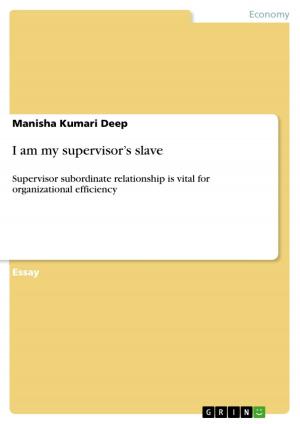| Author: | Sandra Tauer | ISBN: | 9783638535007 |
| Publisher: | GRIN Publishing | Publication: | August 16, 2006 |
| Imprint: | GRIN Publishing | Language: | English |
| Author: | Sandra Tauer |
| ISBN: | 9783638535007 |
| Publisher: | GRIN Publishing |
| Publication: | August 16, 2006 |
| Imprint: | GRIN Publishing |
| Language: | English |
Essay from the year 2006 in the subject Politics - International Politics - Region: Russia, grade: distinction (80%), The University of Sydney (Facultiy of Economics and Business), course: Media and International Politics, 31 entries in the bibliography, language: English, abstract: In a crucial moment of transition in the late 1980s Mikhail Gorbachev came to power and began to liberalise the soviet political system. He allowed in the name ofglasnostseveral newspapers, literary journals and weekly magazines greater editional licence to criticise the Soviet system. Gorbachev's glasnost gave birth to a new generation of independent-minded journalists. A law on the mass media gave the new Russian Federation a framework. The law was passed in 1991 and amended several times, and it is still one of the most democratic laws in the country. It guarantees everybody the freedom of thought and speech and the right freely to seek, transfer, produce and disseminate information by any lawful means. Article 29.5 forbids censorship and guarantees the freedom of the mass media. In 1991 Russian media celebrated this opportunity and most Russian press declared their independence from the state. Freed from censorship, new quality newspapers acted as a forum for debate of public issues and they took great pride in calling themselves the 'fourth estate'. Papers like Nezavisimaya Gazeta or Independent Newspaper for example gloried in the freedom to act as a forum for discussions. The liberalization of television too began in 1990, when the state-owned Russian television station RTR was founded. RTR started broadcasting in spring 1991 and started to show its programs on the Second Channel.
Essay from the year 2006 in the subject Politics - International Politics - Region: Russia, grade: distinction (80%), The University of Sydney (Facultiy of Economics and Business), course: Media and International Politics, 31 entries in the bibliography, language: English, abstract: In a crucial moment of transition in the late 1980s Mikhail Gorbachev came to power and began to liberalise the soviet political system. He allowed in the name ofglasnostseveral newspapers, literary journals and weekly magazines greater editional licence to criticise the Soviet system. Gorbachev's glasnost gave birth to a new generation of independent-minded journalists. A law on the mass media gave the new Russian Federation a framework. The law was passed in 1991 and amended several times, and it is still one of the most democratic laws in the country. It guarantees everybody the freedom of thought and speech and the right freely to seek, transfer, produce and disseminate information by any lawful means. Article 29.5 forbids censorship and guarantees the freedom of the mass media. In 1991 Russian media celebrated this opportunity and most Russian press declared their independence from the state. Freed from censorship, new quality newspapers acted as a forum for debate of public issues and they took great pride in calling themselves the 'fourth estate'. Papers like Nezavisimaya Gazeta or Independent Newspaper for example gloried in the freedom to act as a forum for discussions. The liberalization of television too began in 1990, when the state-owned Russian television station RTR was founded. RTR started broadcasting in spring 1991 and started to show its programs on the Second Channel.















